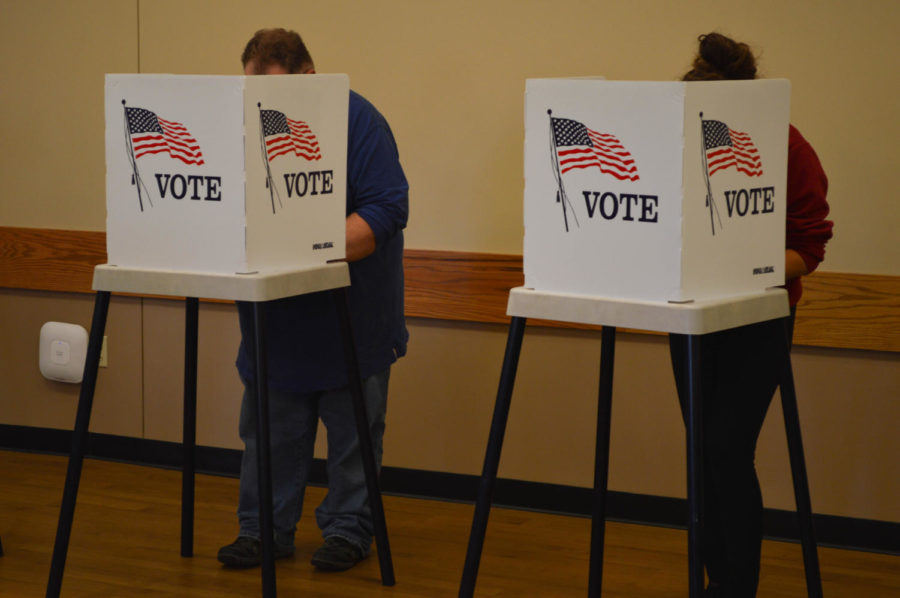Johnson: Iowa House special election date is voter disenfranchisement
Maddie Leopardo/Iowa State Daily
Iowa State students fill out their ballots at the Union Drive Community Center on Nov. 8. UDCC is one of the many polling locations on campus.
August 4, 2019
There will be a special election for the Iowa House District 46 Tuesday, but many of the district’s constituents may not have a say in the outcome.
Under Iowa Code 69.14, Gov. Kim Reynolds clearly had unilateral control over when this election was to take place. Though this race has a relatively clear winner — Democrat Ross Wilburn is running without a Republican adversary — the date of the election is a slap in the face to student voters.
Advocates for equal access to the ballot, such as the Iowa State University Andrew Goodman Foundation Vote Everywhere team, are similarly outraged. House District 46 covers most of Iowa State’s campus, and therefore many of the on-campus students are represented in the Iowa House by the winner of this election.
With classes in-session eight months out of the year, placing this special election during a time when classes are not in session is voter disenfranchisement. Students need to have full ability to vote for their representatives in-person whenever an election comes up.
Many might argue that absentee ballots are an effective method of voting in this election for students, but it is ridiculous to think that turnout will be higher or even equal to the voter turnout we may have gotten if the students were to physically be in Ames. Even with the advent and popularization of early and absentee voting methods, a vast majority of people still vote in-person.
This is not Reynolds’ first suspect scheduling of a special election that is where the propensity for student voting is concerned. In March, she scheduled a special election for the 30th Senate District of Iowa on the Tuesday of spring break for University of Northern Iowa students. Having two of these very similar events occur is disturbing, especially given the proximity in time to one another.
It is pretty clear to me that Reynolds is setting a dangerous precedent of being willing to schedule special elections for the purposes of disenfranchising students. Even if this is an uncontested election, there is no justifiable reason why the election cannot be held just a couple weeks later when students are around to make their voices heard through the ballot box.
Generally, we have it pretty good in Iowa with laws allowing us to register and vote on Election Day, as well as obtain on-campus polling locations at various colleges and universities. However, it is important to not let these privileges be taken for granted. The right to be heard and represented is the most fundamental political power that citizens of the United States have, and any threat to these rights must be taken seriously by us as citizens. Thus, it is important that we don’t allow our voices as students to be silenced either by our governor or state government when the list of attempts to do so grows longer.
















